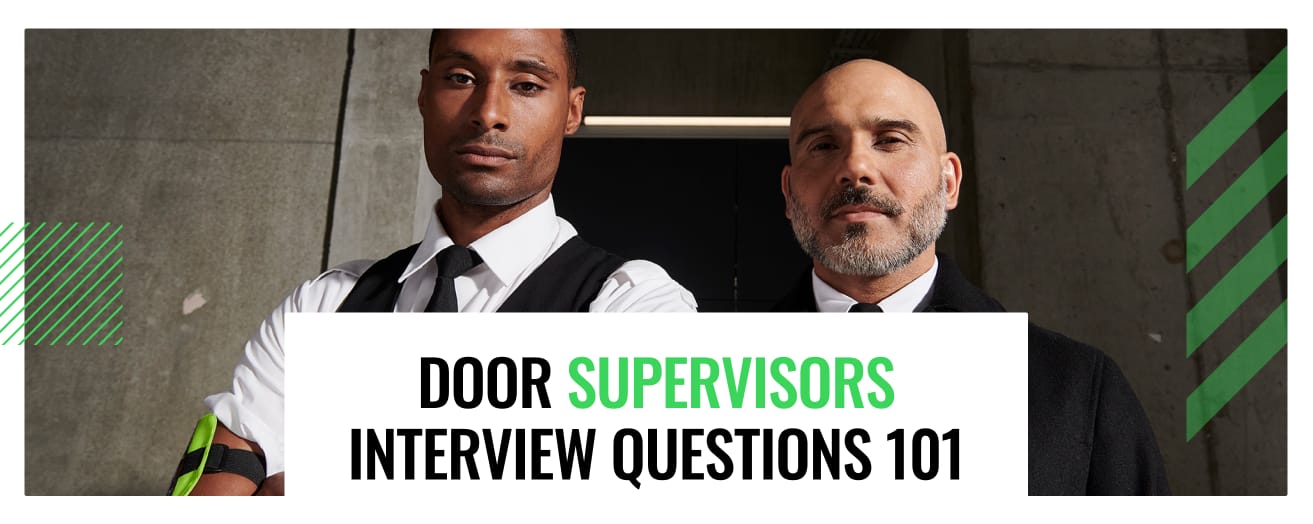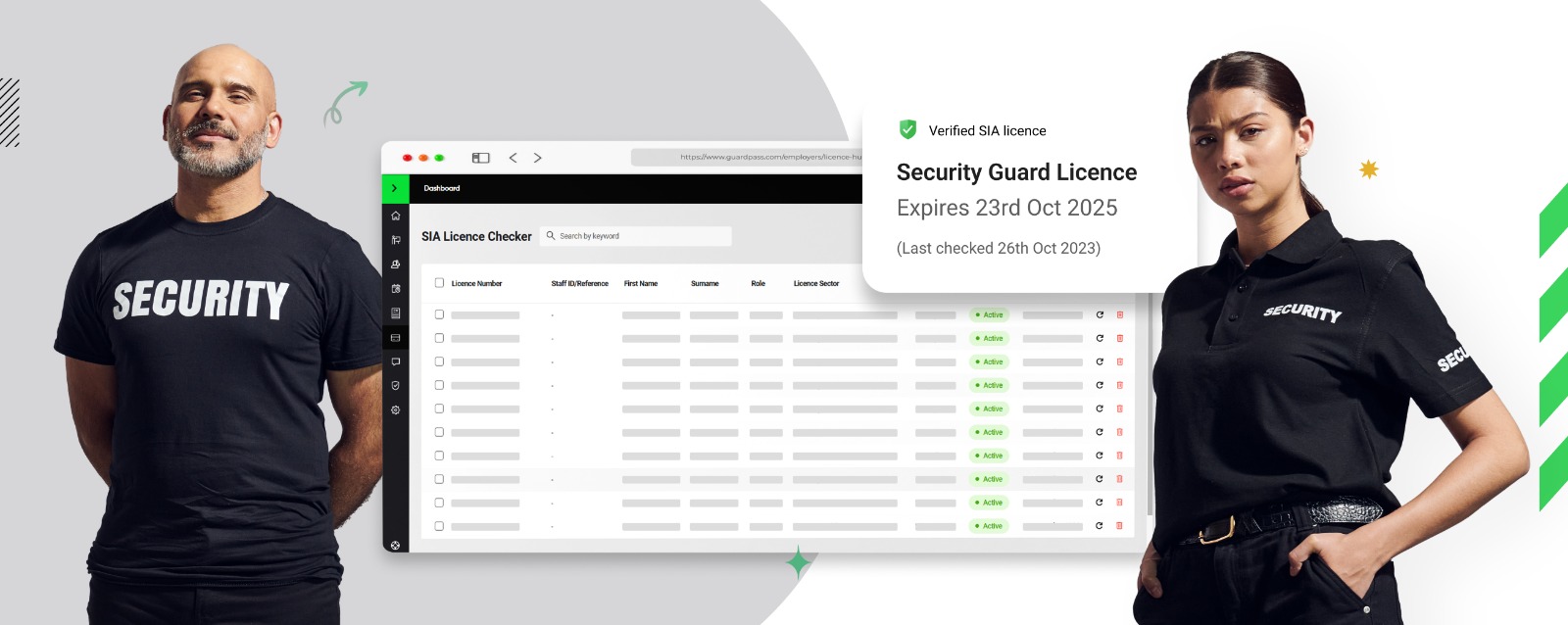Are you on the hunt for a top-notch door supervisor? Want someone who really stands out from the rest? It’s a big task, isn’t it? How do you know if they’re up to it? What even makes the perfect door supervisor? Loads of questions, right? Think of it like putting the right piece in just the right spot in a puzzle. Basically, you need someone who isn’t just tough, but also knows how to manage crowds and keep things friendly. Sounds like what you’re after? But how do you pick the best? Fret not, Our guide “Door supervisors Interview Questions 101” will walk you through the process of interviewing candidates,
Let’s start.
Scenario-based Questions
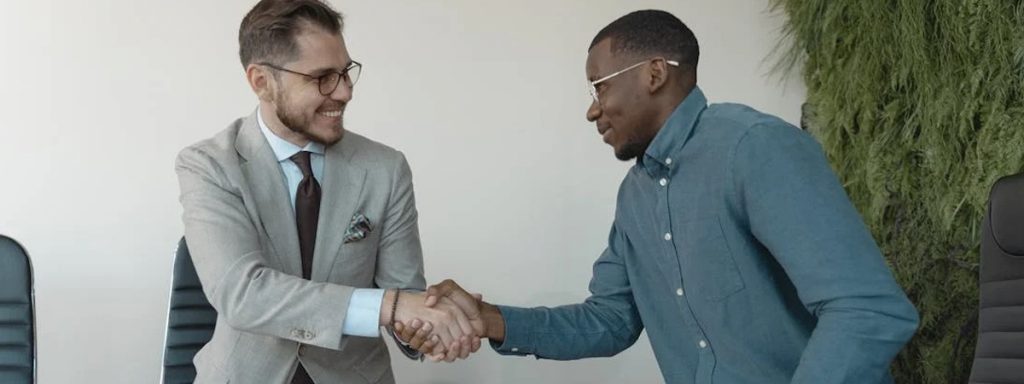
Start your interview with scenario-based questions. Think of them as your go-to to understand how a candidate would behave in real-life situations without the script in front of them.
✅ Confrontation Management:
Describe a time when you successfully managed a confrontation without physical intervention.
This question is vital as it uncovers how the candidate handles conflicts. A competent door supervisor knows that brute strength is a last resort. Listen for answers that showcase quick thinking, empathy, and effective verbal de-escalation techniques.
✅ Vigilance During Downtime:
How do you stay alert during long periods of inactivity?
The nature of a door supervisor’s role can sometimes involve hours of minimal activity, but threats can arise in a heartbeat. Answers should reflect their consistency in routine, strategies to maintain high alertness levels, such as routine physical activities or mental exercises to remain sharp. Search for situational awareness in their answers. This involves constantly scanning the environment for any changes or potential threats, keeping you ready to act at a moment’s notice.
✅ Emergency Response:
Can you tell us about a time you handled an unexpected emergency situation in your previous roles?.
Emergency situations require a cool head and quick feet. This question tests the candidate’s ability to react swiftly and efficiently under pressure. Expect specific examples: a clear thought process, prioritisation of safety, effective communication with both the team and patrons and details of the steps they took to manage the situation.
✅ Team Coordination:
Describe a situation where you worked with other security staff during a big event or tricky situation.
Coordination and communication? Cornerstone In managing large crowds and high-risk scenarios effectively. Focus on how they talk about teamwork. You want to hear that they can communicate well and make smart decisions with others, not just on their own.
✅ Handling Customer Complaints:
How have you dealt with a customer who was unhappy or causing trouble?
Door supervisors often face situations where they need to handle complaints or disturbances while maintaining professional composure and ensuring safety. Seek for patience and problem-solving. Good supervisors will explain how they listened, calmed things down, and found a fair solution while sticking to the rules.

Every venue is unique, and so are its security needs. From nightclubs to formal corporate events, the security challenges vary. It’s wise to adapt these interview questions to fit the specific context of your venue. For instance, a nightclub might require more emphasis on crowd control skills, whereas a corporate event might prioritise surveillance and guest screening techniques. Tailoring questions to your specific needs not only ensures you find the right fit but also demonstrates your commitment to comprehensive security.
Technical Questions

Moving on to the nuts and bolts, technical questions help you gauge the candidate’s foundational knowledge and compliance with industry standards.
✅ Safety Protocols:
Explain the steps you take to ensure all safety protocols are adhered to on site.
Every venue has its set of safety regulations, and a good door supervisor should have meticulous attention to detail. Look for a systematic approach to routine checks and emergency procedures. Ideally mentions potentially different responses for terrorist threat situations, as per Martyn’s Law.
✅ Legal Compliance:
How do you keep up with changes in security laws and regulations?
Door supervisors must be updated about legal updates to ensure compliance and protect both patrons and the venue. Ask to mention regular training updates, subscriptions to industry newsletters, or involvement in security forums. Tell them to prove their commitment to staying informed and compliant.
✅ Conflict Resolution Techniques:
What strategies do you use to resolve conflicts before they escalate?
De-escalating conflicts without physical intervention?A key skill for door supervisors. Look for specific techniques such as verbal warnings, calm communication, and when necessary, involving other team members or authorities in answer. Don’t compromise on their ability to handle tense situations effectively.
✅ Use of Technology:
What security technology tools have you used in previous roles?
Familiarity with security technology, like CCTV and access control systems, is essential for modern security management. Did they use these systems if yes how they’ve used them to enhance security measures? This indicates both technical proficiency and a proactive approach to leveraging technology.
✅ Risk Assessment:
Describe how you conduct a risk assessment for a new venue.
Risk assessments are fundamental to planning security coverage and ensuring comprehensive protection. Effective responses should outline a methodical approach to evaluating potential threats, including checking entry points, identifying crowd control issues, and assessing emergency exit accessibility.
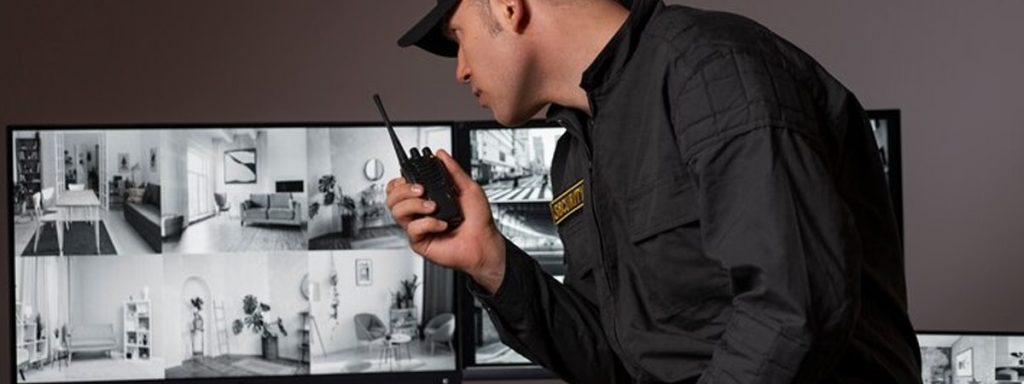
Being tech-savvy isn’t just a bonus, it’s essential in today’s world. From surveillance systems to digital reporting tools, technology is at the heart of modern security. It’s important to dive deeper into each candidate’s technological skills during the interview. Ask about their experience with the latest security technologies, how they’ve used them, and how they stay updated with new tools. This not only ensures they’re capable of handling the tech at your venue but also prepares them for future advancements.
Behavioural Questions

Lastly, tap into the behavioural aspect. These insights can reveal if the candidate’s values align with the ethos of your security team.
✅ Core Qualities:
In your opinion, what is the most important quality a door supervisor must possess and why?
This open-ended question lets the candidate reflect on their personal and professional values. Whether they talk about integrity, vigilance, or communication, their answer can provide a deep dive into their suitability for the role. And be aware, It’s a big red flag if a candidate is talking about physical ability or unarmed combat skills before things like empathy, observation skills or active listening.
✅ Adaptability:
Can you give an example of how you’ve adapted to a sudden change at work?
The ability to adapt quickly is a key skill in security, situations can change rapidly in this industry. What to look for? Answers showcasing flexibility and the ability to think on their feet, perhaps through innovative solutions or quick decision-making.
✅ Ethical Decision-Making:
Describe a time when you had to make a tough ethical decision on the job.
Ethical challenges are common in security roles; how they handle these says a lot about their integrity. Answers should reflect a principled approach to decision-making, ideally showing a balance between following protocols and moral judgement.
✅ Handling Feedback:
How do you handle constructive criticism from your manager or peers?
Receiving and implementing feedback effectively is key to personal and professional growth, especially in a role as dynamic as door supervision.seek for openness to learning and a positive attitude towards improvement.
✅ Long-term Commitment:
What motivates you to stay focused and committed in a role that can often be quite demanding?
The nature of door supervision requires a sustained commitment to high standards of security and vigilance. Search for what drives them to keep up their performance over time, such as personal goals, professional ethics, or a passion for ensuring safety and security.
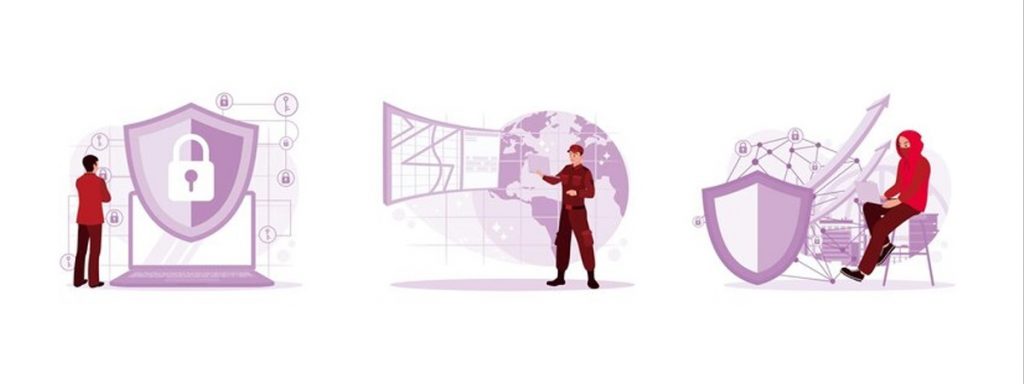
The security field is ever-evolving, and continuous learning is key to keeping up. Ask candidates about their approach to ongoing education and training. How do they stay updated with the latest security laws and technologies? What recent training have they completed? Discussing their commitment to professional development will give you insights into their ability to adapt and grow, ensuring they remain effective in their roles as new challenges arise.
Follow-Up Strategies Post-Interview

After the interview, the real work begins. Don’t just stop at their responses; delve deeper.
⏩ Review with a Rubric: Match candidates’ responses to a set checklist to ensure fairness and clarity.
⏩ Background Checks: Always conduct thorough background checks to confirm credentials and history.
⏩ Team Fit Assessment: Consider how a candidate’s personality might complement your current team dynamics.
⏩ Practical Assessments: Set up hands-on tasks or simulations to see how they handle typical job challenges.
⏩ Reference Checks: Contact previous employers to verify performance and behaviour.
⏩ Trial Days: Offer a trial work day to evaluate how they manage real-time environments and interact with staff.
These strategies provide a comprehensive approach to making informed hiring decisions, helping you find the best match for your security needs.
Bonus Tip 💡
Always keep your interview process up-to-date. Security needs evolve, and so should your questions. While structured questions are great for consistency, they can sometimes limit the flow of conversation. Ask open-ended questions that encourage candidates to share experiences and ideas spontaneously. This can reveal more about their personality, adaptability, and real-time problem-solving skills, which are just as important as their technical and operational capabilities.
Wrapping Up the Interview
Choose wisely, as this individual will not just safeguard your premises, but the overall atmosphere and experience of your clients and their patrons. Your candidate’s answers should form a coherent picture of their ability to not only manage the physical aspects of the job but also to handle sensitive situations with tact and confidence. Remember, a top-tier door supervisor is someone who contributes positively to the safety and customer experience of your venue.
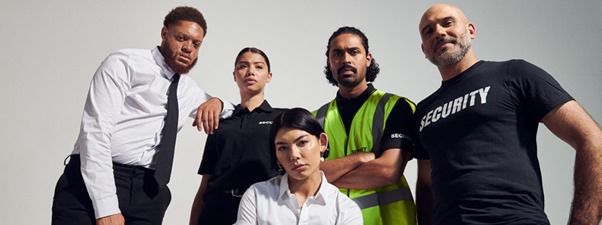
Dive into GuardPass’s vast talent pool of 170,000 SIA approved candidates, each ready to bring their expertise to your team. Get a first look at potential hires with our 20-second introductory videos before you even set up the first interview. With GuardPass, find someone who not only watches over a door but stands as the first impression of your security prowess.
Fill the form below and use this cheat sheet to ask the right questions and find someone who not only watches over a door but stands as the first impression of your security prowess.
Estimated reading time: 5 minutes
